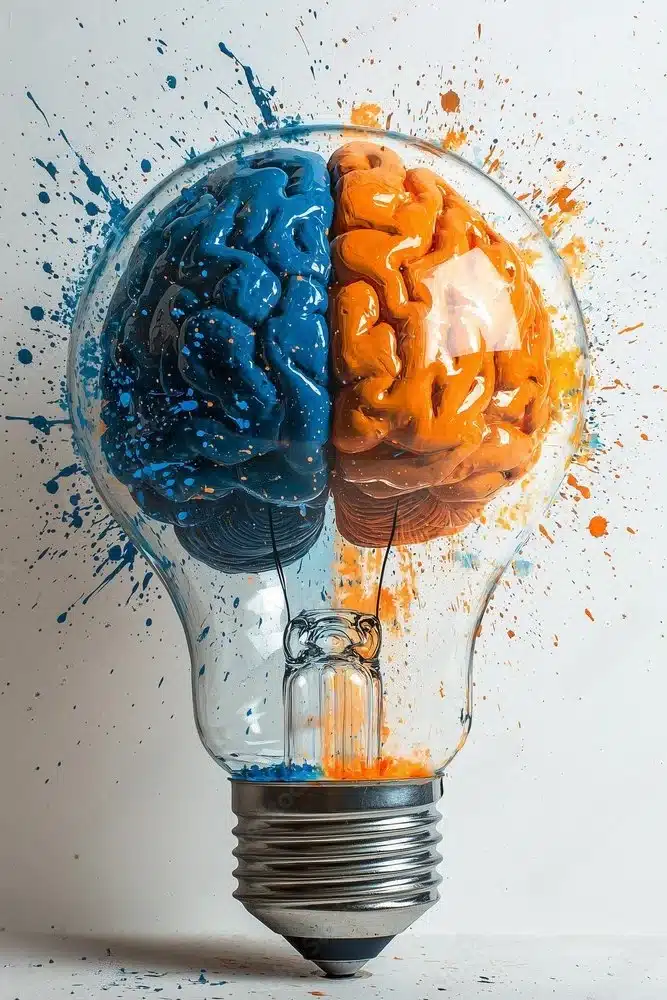Neurocognitive Care (ADHD, Long COVID & Post-Concussive Syndrome)
Cognitive Remediation Therapy (CRT) & Ketamine-Assisted CRT (CRT-K)
A structured, short-term treatment designed to optimize cognitive functioning and emotional well-being.
Neurocognitive difficulties can arise from conditions like ADHD, post-infection (e.g., long COVID or Lyme Disease), post-concussive syndromes, epilepsy, Parkinson’s disease, cerebrovascular conditions, and medication-related effects (e.g., chemotherapy). These challenges often impact work, school performance, and self-esteem, creating a cycle of poor mood and worsening cognitive function.
At Acheron, we break this cycle through Cognitive Remediation Therapy (CRT) - a structured, evidence-based approach that enhances cognitive skills and emotional resilience.
Cognitive Remediation Therapy (CRT)
Cognitive Remediation Therapy (CRT) targets areas of cognitive dysfunction through teaching strategies to support strengths and compensate for areas of cognitive weaknesses.
Ketamine-Assisted Cognitive Remediation Therapy (CRT-K)
A powerful integration of cognitive remediation, cognitive behavioral therapy, and ketamine’s neuroplastic effects to accelerate and enhance insight, creativity, and clarity of thinking.

Seamless Neuropsychological Assessment & Treatment
All In One Place



At Acheron, we provide both neuropsychological assessment and neurocognitive treatment in one seamless experience—so you can receive all your neurocognitive care in one place.

Meet Dr. Amanda Sacks-Zimmerman: Expert in Cognitive Remediation
Dr. Amanda Sacks-Zimmerman is a board-certified neuropsychologist and Clinical Associate Professor at Weill Cornell Medicine, specializing in cognitive remediation and executive function training. As the Clinical Director of Acheron’s Neurocognitive Services, she helps individuals regain focus, memory, and mental clarity through Cognitive Remediation Therapy (CRT) and Cognitive Remediation Therapy integrated with Ketamine (CRT-K), using a strength-based, integrative approach to optimize cognitive function and daily engagement.
What CRT Includes
- Attention Training Exercises and Metacognitive Strategy Building: For planning, goal-setting, decision-making, and time management. Engagement in exercises to harness attentional control. Learn to identify and reduce both internal and external distractions.
- Cognitive-Behavioral Strategies: To identify, challenge, and modify maladaptive self-messaging that contributes to negative self-concept, depressive and anxious mood related to cognitive functioning all of which build self-agency and resilience.
Personalized Goals: At the beginning of treatment, we derive tailored and specific goals to make meaningful changes and optimize functioning in major life areas including work and personal life.
- 9-Session Program: Includes a 1-hour comprehensive intake session followed by 8 weekly 1-hour sessions which integrate exercises to enhance attentional control, self-awareness, strategic problem-solving, and time management.
End Goal: Develop an empowered sense of self by recognizing natural cognitive strengths and develop strategic tools to optimize cognitive functioning in daily life.
CRT also supports those seeking non-medication-based cognitive enhancement, including individuals exploring stimulant reduction for ADHD. While an ADHD diagnosis has been associated with health risks, many individuals also consider reducing or stopping stimulant use due to supply shortages, dependency concerns, and potential side effects, such as mood changes or cardiovascular risks. Having a non-pharmacological option for managing attentional difficulties can be a valuable alternative.
Key Focus Areas
Enhancing information processing
Strengthening attention and concentration
Building task management strategies
Developing resilience and emotional flexibility
Identifying and overcoming limiting beliefs to uncover innate strengths
Increasing processing for more effective learning and memory
CRT-K Structure
- 4 Preparation Sessions: Build awareness, enhance cognitive control, and set goals
- 4 Ketamine Sessions: Unlock neuroplasticity for deeper self-exploration
- 4 Integration Sessions: Process insights and implement strategies
- 2 Additional Non-Ketamine Sessions: Strengthen cognitive and emotional resilience, using strategy-based techniques
CRT-K Benefits
Boosts Neuroplasticity: Enhances learning, adaptation, and insight
Encourages Creativity: Supports novel problem-solving and perspective shifts
Develops Emotional Resilience: Builds self-acceptance and cognitive empowerment
Core Principles of Neurocognitive Treatment
Know Thyself: Self-awareness fosters balance, self-acceptance, and inner peace.
Emotion Impacts Cognition: Recognizing emotional influences helps optimize cognitive function with CRT-K.
Empowerment & Resilience: Strengthening cognition builds confidence and success.
Creativity & Growth: Expanding cognitive flexibility enables problem-solving and meaningful life choices with the techniques of CRT-K.
Neuroplasticity: CRT utilizes experience-dependent neuroplasticity to help the brain adapt and improve cognitive efficiency.
Ketamine & Neuroplasticity: Ketamine enhances the brain’s innate neuroplasticity, further supporting cognitive transformation and emotional resilience.
